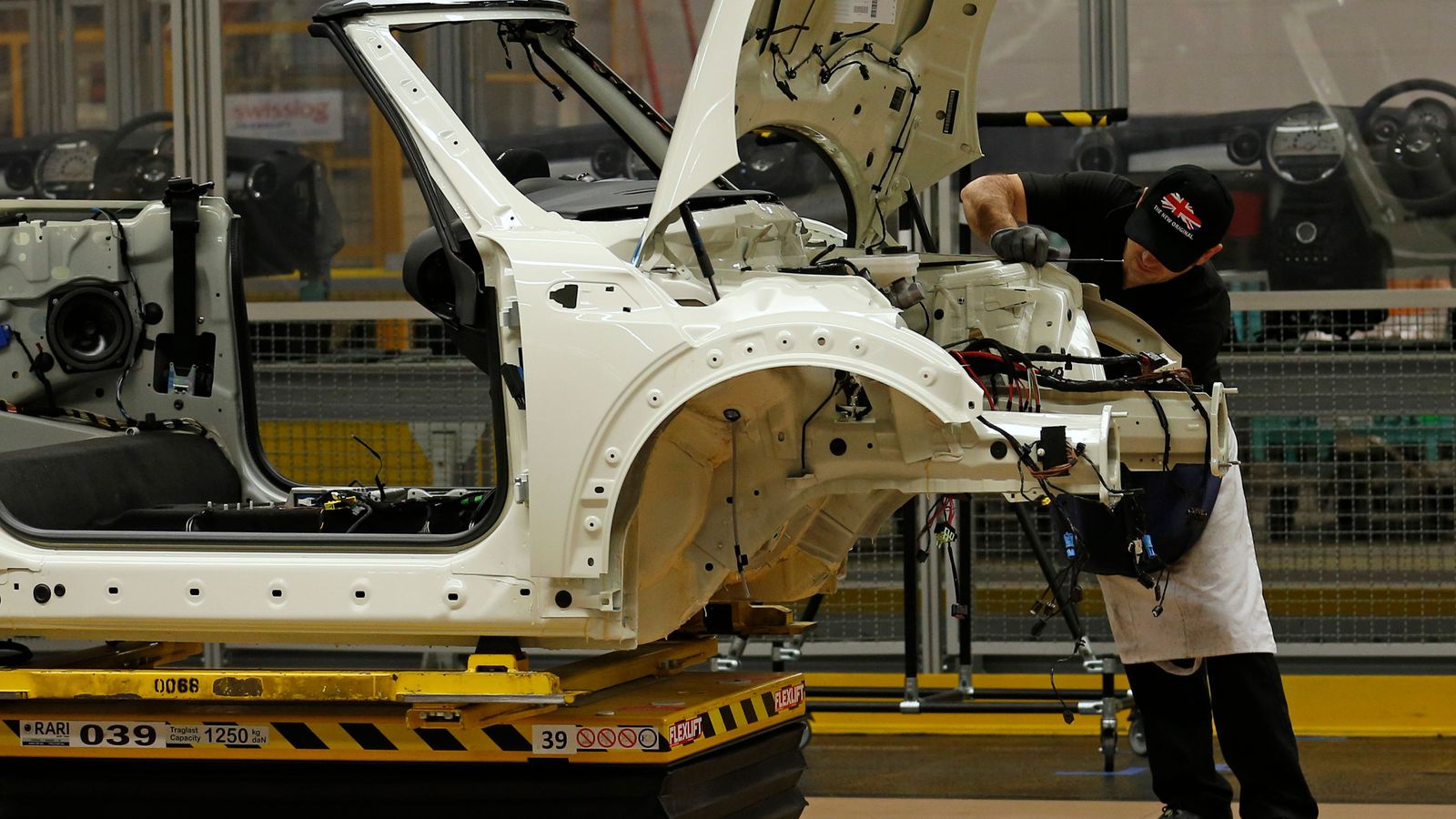BMW to make new electric Mini in Oxford after securing millions in taxpayer funding

BMW is to build its next generation of electric Minis in Oxford after securing £75m in taxpayer support from the government.
It comes as the German-headquartered car giant announced it would invest a total of £600m in the UK, including at its factory in the city and at a vehicle body-pressing plant in Swindon.
Ministers say the move will help to secure the future of around 4,000 jobs across the two sites.
Sky News revealed earlier this year that BMW was preparing to invest millions in its plant in Oxford, supported by £75m in government funding.
BMW said production of two new electrified models, the three-door Mini Cooper and the Mini Aceman, would start in 2026. They will also be manufactured in China.
By 2030 production at the site in Cowley, Oxford, will be “exclusively electric”, the company added.
The factory, which has been producing the current Mini Electric since 2019, celebrated its 110th anniversary earlier this year.
Stefanie Wurst, head of the Mini brand, said: “Mini has always been aware of its history – Oxford is, and remains, the heart of the brand.
“I am delighted that the two new, fully electric Mini models are also being produced in Oxford, thereby confirming our path to a fully electric future.”
Advertisement
The government said BMW’s announcement meant total investment into the country’s automotive sector had now topped £6bn over recent years.
Prime Minister Rishi Sunak said: “BMW’s investment is another shining example of how the UK is the best place to build cars of the future.”
Read more from business:
Insolvency firms face crackdown in government shake-up
Morrisons and Motor Fuel Group in talks about £2bn petrol forecourts deal
Crisis-hit CBI business group faces new cash crunch amid talks with rival
He added: “By backing our car manufacturing industry, we are securing thousands of jobs and growing our economy right across the country.”
Business and Trade Secretary Kemi Badenoch said the investment showed the government’s plan for the sector was “generating results”.
She told Sky News: “At a time when people are concerned about what the future is going to be like for the auto industry, what we’re saying is that we’re doing a lot and it is working.”
Ms Badenoch also denied the government had been failing to do enough to support the industry after the head of collapsed electric car battery company Britishvolt blamed ministers after it went into administration earlier this year.
She said officials had made a “very, very sensible decision… in order to protect taxpayers” as the firm had been struggling to secure private sector investment.
“Not everybody with a plan should expect the government to dole out cash,” she added.
BMW’s announcement is the latest boost for the British car industry, after figures last month suggested production had increased by almost a third compared to a year ago.
The Society of Motor Manufacturers and Traders said it showed the industry was recovering from COVID-related disruption, with much of the growth driven by production of high-tech hybrid electric, plug-in hybrid and battery electric vehicles.
Last week, electric vehicle production also began at the Stellantis factory in Ellesmere Port after a £100m investment.
Vans such as the Vauxhall Combo Electric, Opel Combo Electric, Peugeot e-Partner, Citroen e-Berlingo and Fiat E-Doblo will be made at the site in Cheshire.